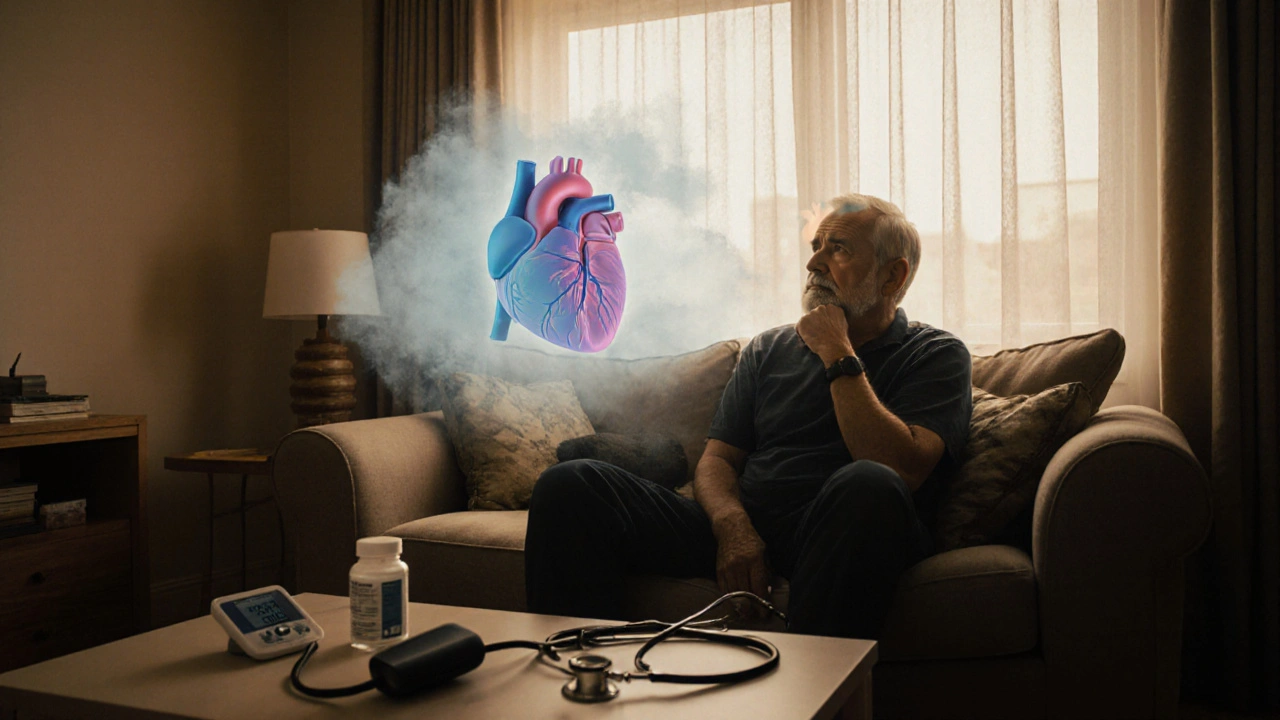Heart Failure and Depression: How They're Connected
If you have heart failure, you might notice a down mood that sticks around. It’s not just you feeling blue – many people with a weak heart also battle depression. The two conditions feed each other, making treatment trickier but also more important.
Studies show that up to one in three heart‑failure patients develop clinical depression. That’s a big number, and it matters because depression can worsen heart‑failure symptoms. When you’re sad, you might skip meds, avoid exercise, or eat poorly – all things that strain a fragile heart.
Why Depression Often Shows Up with Heart Failure
There are a few obvious reasons. First, the physical limits of heart failure can feel crushing. Being told you can’t climb stairs or lift groceries can drain your motivation. Second, the body’s stress system goes into overdrive. Hormones like cortisol rise, which can change brain chemistry and trigger depressive feelings.
Third, certain heart‑failure drugs, especially beta‑blockers, can cause fatigue and low mood as side effects. It’s not that the meds are bad – they protect the heart – but they can tip the balance toward feeling down.
The overlap isn’t just emotional. Depression can raise blood pressure, increase inflammation, and make blood clot more likely. Those changes can accelerate heart failure progression, creating a vicious cycle.
What You Can Do to Manage Both
Good news: the cycle can be broken. Talk to your cardiologist about your mood. Sometimes a simple dose adjustment or adding a low‑dose antidepressant can lift both your spirits and your heart health.
Exercise, even light walking, is a proven mood booster and heart‑strengthener. Start with short, manageable walks and build up. If you’re unsure, ask a physical therapist for a safe plan.
Nutrition matters too. A diet low in sodium and rich in fruits, veggies, and lean proteins supports the heart and can improve brain function. Limit alcohol and caffeine if they make you anxious.
Connecting with others can lift the gloom. Support groups for heart‑failure patients often discuss mental health openly. Sharing experiences reduces isolation and gives you practical tips.
Finally, consider therapy. Cognitive‑behavioural therapy (CBT) helps reframe negative thoughts and builds coping skills. Many therapists now offer tele‑health sessions, making it easier to fit into a busy medical schedule.
In short, if you notice a slump while managing heart failure, don’t ignore it. Treating depression isn’t an extra burden – it’s a key part of keeping your heart on track. By addressing both sides, you give yourself the best chance at a healthier, brighter future.
How Chronic Heart Failure and Depression Influence Each Other
Explore the two‑way relationship between chronic heart failure and depression, its impact on outcomes, and practical ways to manage both conditions together.
Read more
